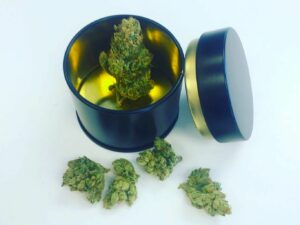"My girlfriend is dealing with stage 4 breast cancer. We hired an MMJ consultant 3 weeks ago and started her on RSO – 1:1 CDB:THC.
She is doing around 10 mg. sublingually three times per day, and rectally at night. 42 mg. the first week, then 84k, and now 168 mg. She is still doing the sublingual method, but hasn’t increased it much yet as she doesn’t want to get high. We were told that the rectal administration has great bioavailabiliy. But then read that it didn’t (Greenbridge site). So there is some confusion. She has been doing a little better, but she needs to get her abdomen tapped due to a problem with ascites. It prevents her from eating and drinking, causing her to vomit.
My question are, does it seem that we’re on the right track? Should the oil help with the ascites? When should we some some results? Is it okay to stay with the daytime low doses and rely more on the heavier rectal administratrion at night? Thanks!
"
Normally, rectal administration of lipid soluble products has a good bioavailability. There may be factors related to the individual that can slow or prevent this such as previous surgical interventions, radiation treatments or other colo-rectal diseases. The bioavailability varies by product based on dosing and carrier media as well. Large scale studies still need to be done to find out the range of bio-availability for many cannabis preparations.
Ascites is a symptom and side effect of a disease process. It is the accumulation of fluid in the abdominal cavity due to either obstructed blood flow to the central and lower extremity circulation, inflammatory processes related to cancer or infection in the organs of the abdomen. In the case of Stage 4 Breast Cancer, one can assume that the cancer has invaded abdominal organs or metastasized to the liver which is the likely cause of the ascites along with some level of inflammation due to the cancer burden in the body.
"Tapping the abdomen" (paracentesis) relives the pressure, but does not reverse the process. It is considered palliative. The ascites will improve if the insults to the internal organs are reduced.
There is subjective evidence that cannabis oils help cancer symptoms and are anti-cancer in lab studies, but there are no large definitive studies showing cancer cures.
May I suggest you visit the WAMM (https://wamm.org) Website. This dispensary has been in existence for many years and has worked extensively with cancer patients.
You may have already read this, but this article was published last summer and may be helpful as well.
https://unitedpatientsgroup.com/blog/2015/06/02/treating-breast-cancer-with-cannabis-why-the-treatment-must-match-the-classification/
Best wishes to your friend.
drgerhart





